Key Nebraska Republican opposes Trump effort to change state’s electoral vote process
A growing effort backed by Republicans, including former President Donald Trump, to switch Nebraska’s electoral process to winner-take-all hit a major snag on Monday after a key state lawmaker said he wouldn’t support such a change before the November election.
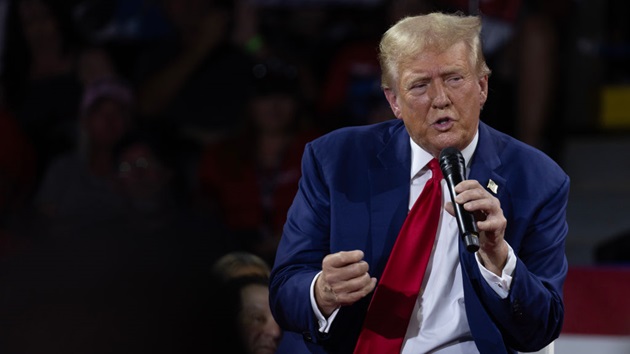
State Sen. Mike McDonnell, one of the key Republicans holdouts GOP Gov. Jim Pillen was looking to for support to break a likely filibuster, said in a statement that he would not vote to change electoral process before then.
Instead, McDonnell said he believed the legislature should take up the issue in next year’s legislative session, which tentatively starts the first week of January 2025.
“In recent weeks, a conversation around whether to change how we allocate our electoral college votes has returned to the forefront,” McDonnell said. “I respect the desire of some of my colleagues to have this discussion, and I have taken time to listen carefully to Nebraskans and national leaders on both sides of the issue. After deep consideration, it is clear to me that right now, 43 days from Election Day, is not the moment to make this change.”
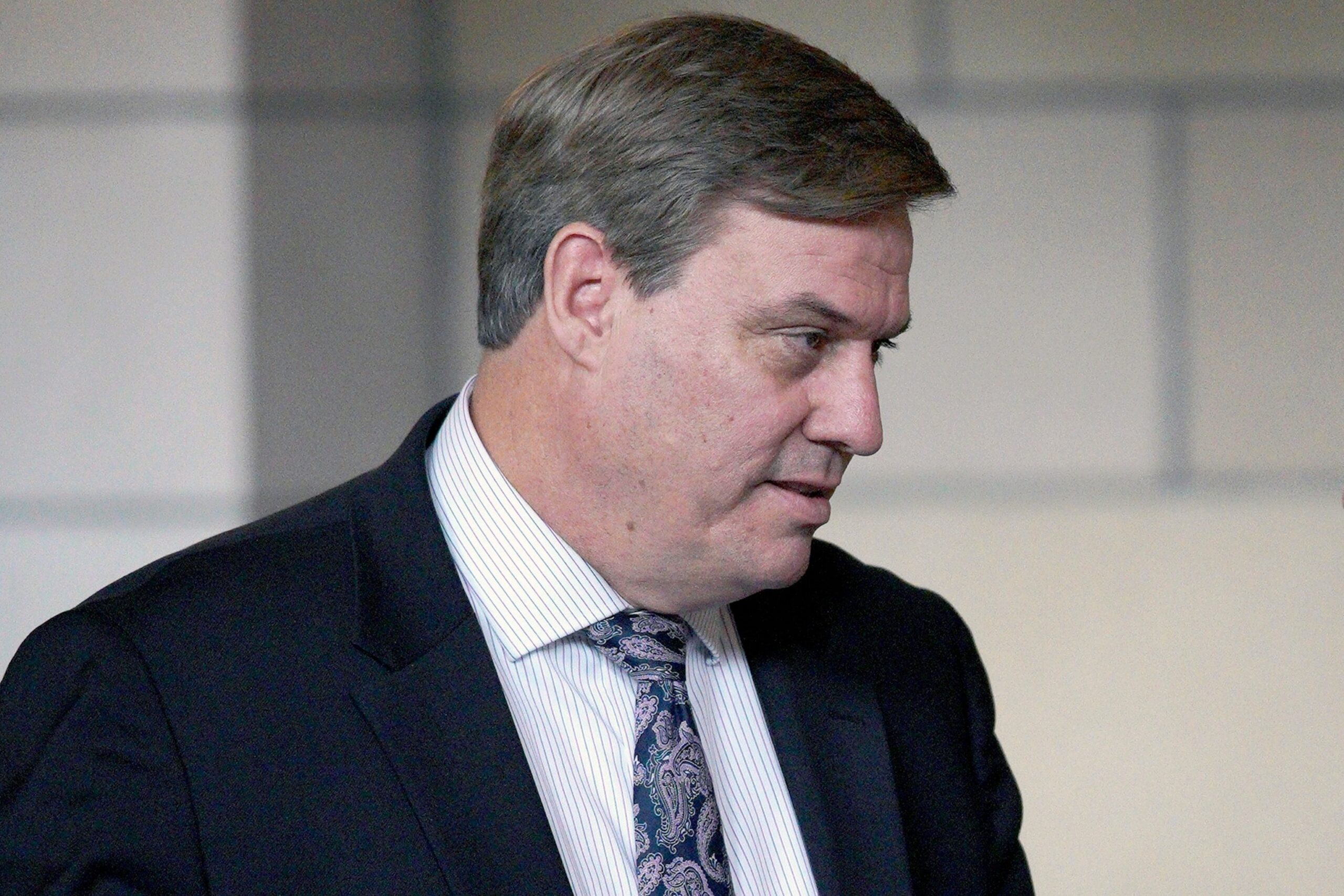
“I have notified Governor Pillen that I will not change my long-held position and will oppose any attempted changes to our electoral college system before the 2024 election,” he added. “I also encouraged him and will encourage my colleagues in the Unicameral to pass a constitutional amendment during next year’s session, so that the people of Nebraska can once and for all decide this issue the way it should be decided — on the ballot.”
Pillen released a statement last week saying he would not call a special session unless Republican legislators could show they have 33 votes needed to break an expected Democratic filibuster. U.S. Sen. Lindsey Graham, a South Carolina Republican and staunch ally of Trump, traveled to Nebraska last week to lobby lawmakers and met with stakeholders.
ABC News spoke to Nebraska Rep. Mike Flood, who agreed that McDonnell was a key holdout and understood the Nebraska legislature needed at least three more votes to break a very likely filibuster.
If the other state Senate holdouts stand firm, McDonnell’s decision effectively throws cold water on the ongoing effort to switch the state’s Electoral College vote to winner-take-all, even after Republican members of Congress and Trump pushed for the change.

Flood, a Republican who represents Nebraska’s 1st Congressional District, said Trump engaging directly on the issue “underscores how big of a deal this is.” Flood, who supports changing the process along with the rest of Nebraska’s federal delegation, said Nebraska “has the right to speak with the majority of its citizens, by and through its legislature, and that’s what I want to see done.”
The winner-take-all electoral change would be pivotal if the Republican-leaning state allocates all of its five electoral votes solely to Trump, instead of dividing them with Vice President Kamala Harris.
Nebraska split its electoral votes in 2020, with President Joe Biden flipping the 2nd district, which includes Omaha. Without gaining the votes from Nebraska’s 2nd district, Harris could not win the general election with “blue wall” of Wisconsin, Michigan and Pennsylvania alone. It would also create a new possibility for a 269-269 Electoral College tie.
“It is amazing to think that could come down to Nebraska, but I think the math and the reality is that it very well may be true,” Flood said.
Late Monday afternoon, Trump thanked Pillen for attempting to “simplify the complexity” of the state’s electoral map, while attacking state McDonnell for opposing it, calling him a “Grandstander.”
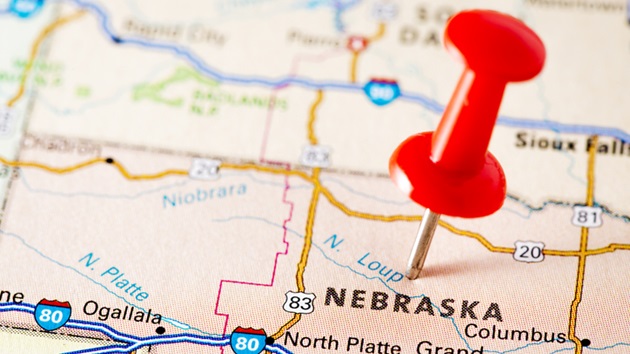
“I would like to thank Governor Jim Pillen of Nebraska for trying to help the Republican Party simplify the complexity of the State’s Electoral Map,” Trump wrote on his social media.
“It would have been better, and far less expensive, for everyone! Unfortunately, a Democrat turned Republican(?) State Senator named Mike McDonnell decided, for no reason whatsoever, to get in the way of a great Republican, common sense, victory. Just another ‘Grandstander!’” Trump wrote.
SEE MORE :
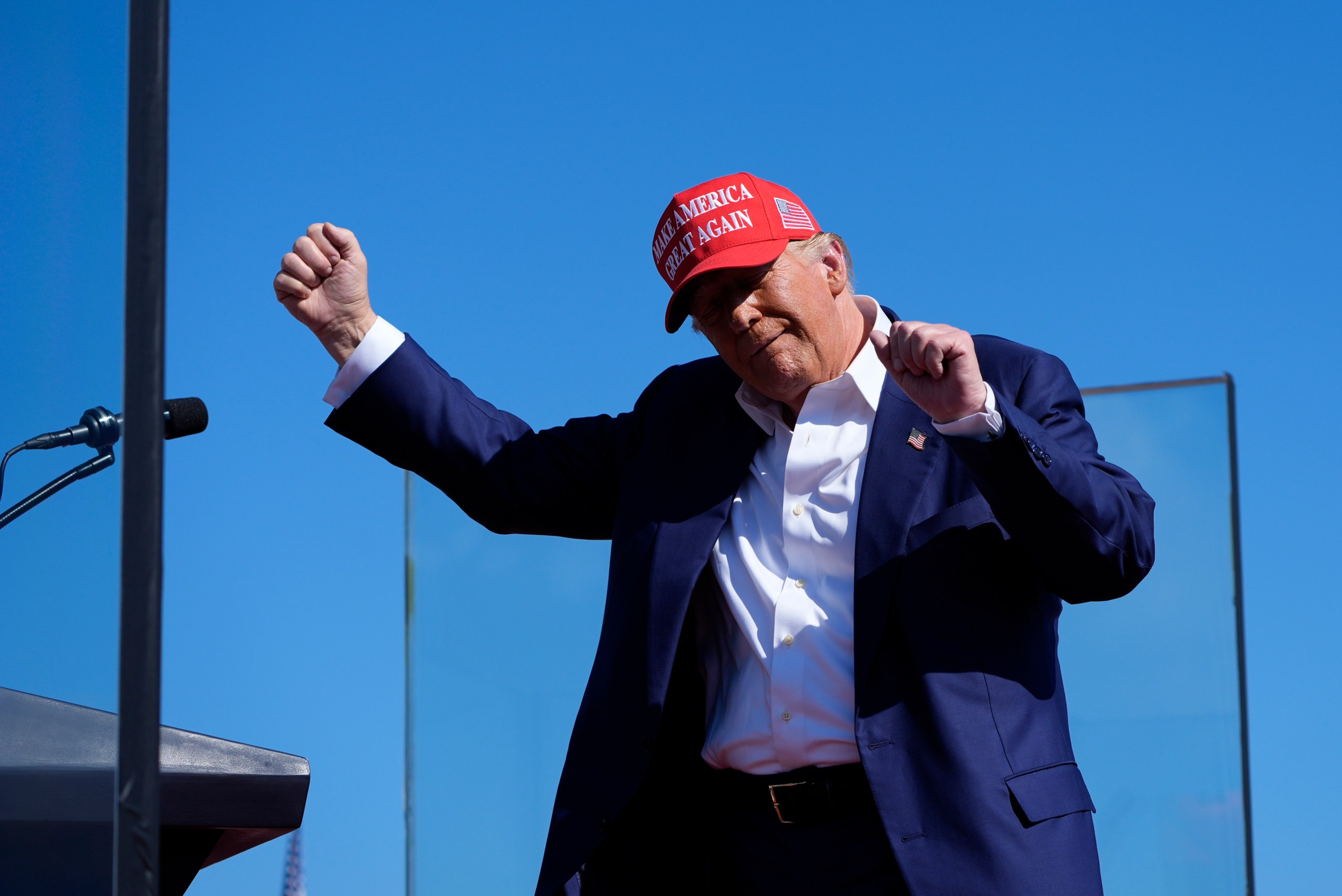
A Republican effort to lock down all of Nebraska’s electoral votes for former President Donald Trump appeared doomed Monday when a state lawmaker denied backers his crucial support for the move.
GOP Sen. Mike McDonnell of Omaha said in a statement that he opposes awarding Nebraska’s five electoral votes on a winner-take-all basis, like 48 other states do. Nebraska and Maine give two electoral votes to the candidate who wins statewide and one vote to the winner in each congressional district.
McDonnell’s position means Republicans don’t have the two-thirds majority they’d need in Nebraska’s unique, one-chamber Legislature to pull off a change ahead of the Nov. 5 election.
Here’s a look at why Trump’s allies were pushing for the change, what it would have taken to succeed and why a single state lawmaker is in the national spotlight.
Nebraska is one of nine states that Republican candidates have carried in every presidential election since 1964, but it hasn’t had a winner-take-all rule since 1991. And most times since 1991, Republican candidates still have captured all of the state’s votes.
But in 2020, Democrat Joe Biden captured the vote for the 2nd Congressional District in the Omaha area. President Barack Obama also did it in 2008.
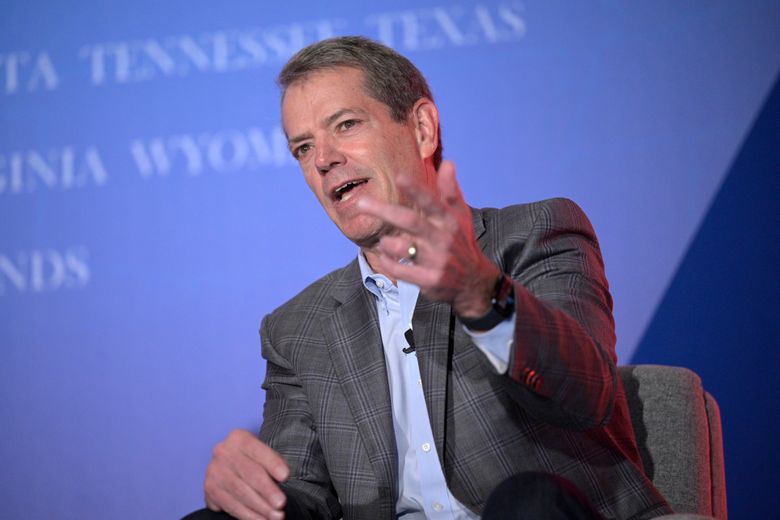
A presidential candidate needs 270 of 538 electoral votes to win. One scenario is that Democrat Kamala Harris, the vice president, wins the battlegrounds of Wisconsin, Michigan and Pennsylvania, while Trump wins the other four — North Carolina, Georgia, Arizona and Nevada. Harris would have 269 electoral votes to Trump’s 268, which would include four from Nebraska.
In that scenario, a Trump victory in Nebraska’s 2nd District would create a 269-269 tie and throw the final decision to the U.S. House of Representatives, where each state would have one vote, a situation that would favor Trump. If Harris carried the district, she’d be president.
In the 2nd District, Republicans have only a small voter registration advantage and 25% of its voters are unaffiliated with any party.
McDonnell said he has told Republican Gov. Jim Pillen that he won’t back a change in the Nebraska law for allocating its electoral votes ahead of this year’s election. That’s consistent with what he’s said previously.
Lawmakers are out of session and not scheduled to reconvene until January, so Pillen would have had to call them into a special session. He has said he wouldn’t do that without a clear indication that a measure could reach his desk.
“After deep consideration, it is clear to me that right now, 43 days from Election Day, is not the moment to make this change,” McDonnell said.
McDonnell is term-limited and will leave office in early January. He said he is encouraging Pillen and the Legislature to propose an amendment to the state constitution next year on how Nebraska awards its electoral votes, so that voters have the final say.
“Nebraska voters, not politicians of either party, should have the final say on how we pick a President,” McDonnell said.
Republicans in Nebraska have wanted to return to a winner-take-all rule for years but have been unable to get to a legislative supermajority.
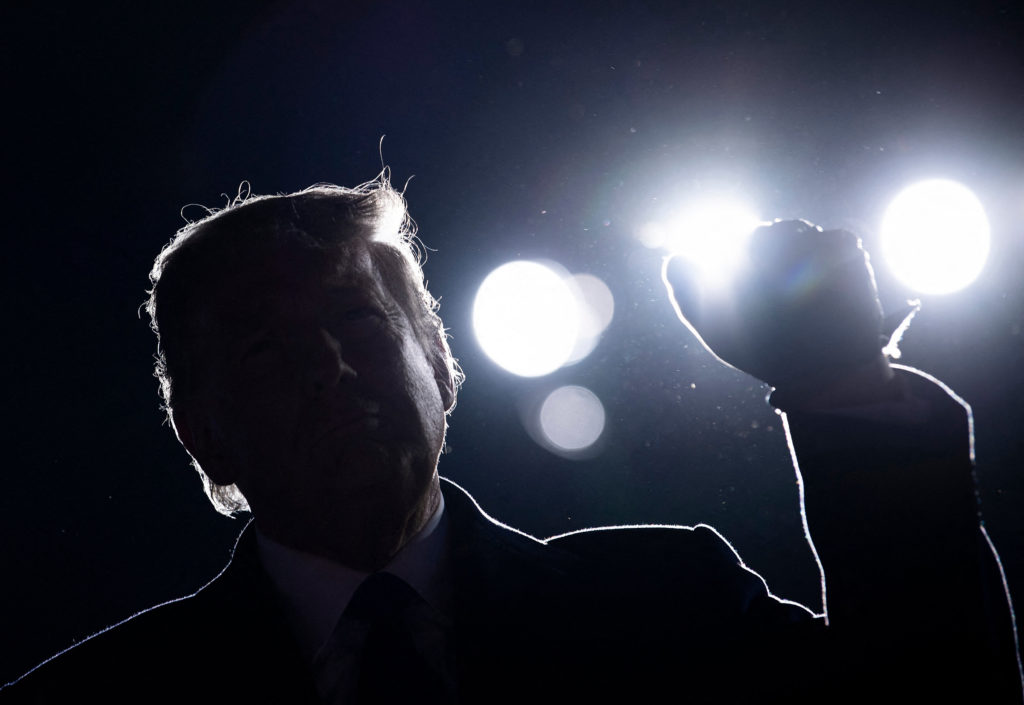
Officially, the Nebraska Legislature is nonpartisan. However, self-identified Republicans hold 33 of 49 seats, exactly a two-thirds majority.
The GOP reached that margin in April, when McDonnell switched parties, citing the Democratic Party’s censure of him last year for supporting abortion restrictions.
The switch had Trump loyalists in the Nebraska GOP buzzing about going back to a winner-take-all system. Recently, Trump’s allies and even the former president himself have been pressuring Republican officials to try.
But in McDonnell’s 5th Legislative District, almost 45% of the voters are registered Democrats, and their party strongly opposes going back to winner take all. Fewer than 26% of the district’s voters are Republicans.
Under the Nebraska Constitution, new laws don’t take effect until three months after lawmakers adjourn — too late for the proposal to affect the Nov. 5 election.
The state constitution does allow the Legislature to add an emergency clause to have a law take effect immediately, but a bill with an emergency clause must pass with a two-thirds majority.
The Legislature’s rules also require the same two-thirds majority to end a filibuster blocking a measure.
Backers of dropping the winner-take-all rule in 1991 argued that it would better reflect voters’ views and attract candidates to a state that otherwise would be ignored.
The change narrowly passed the Legislature during then-Democratic Gov. Ben Nelson’s first year in office. Nelson was the last Democrat to win a governor’s race, when voters reelected him in 1994.